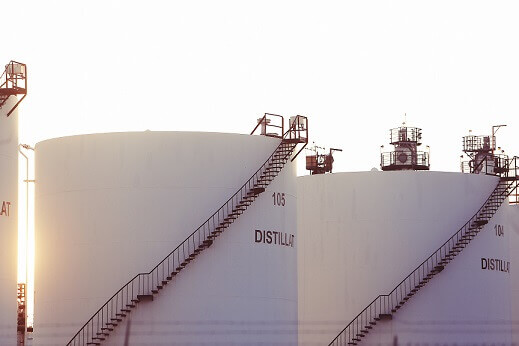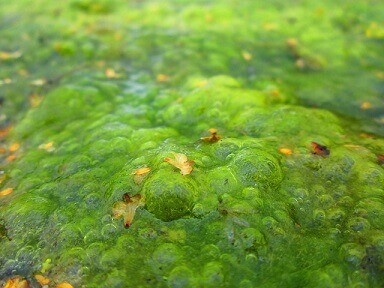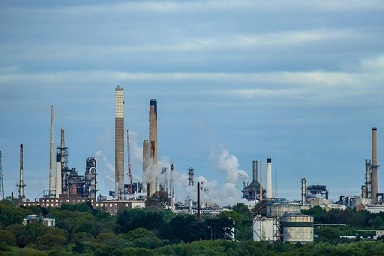Fuels & Petroleums Industry
Fuels and Petroleum are derived through refining processes from crude oil. By utilizing distillation units and additives various grades of petroleum-based fuels are created from Kerosene, Petrol and Diesel, to heavy and light gas oils. Other products such as Wax, bitumen, Toulene and benzene are also produced as crude oil is utilized to create over 144 different types of products.
Each refinery refines fuels in different ways but follows similar processes to produce different products and grades of fuel. Each fuel has a specific energy density. Initially, crude oil is heated by exchangers providing heat from returning distilled fuel within the crude oil distillation unit. The heated crude oil requires salt removing before distillation which is done by being pumped through a desalter. It is then heated to approximately 400°C at the bottom of a distiller. 
Different fuels are distilled at different heights through sidecuts within the distillation unit tower and flow to intermediate storage tanks awaiting further processing where additives are blended with fuel to obtain the desired final product.
There are numerous different process units utilised to derive valuable fuel products and obtain maximum extraction from crude oil using cracking, reforming and alkylation.
Cracking - involves the breaking of hydrocarbon chains into smaller chains to create higher-value fuels
Catalytic Reforming – use of a catalyst to change naphtha into high octane liquids by removing sulfur
Alkylation – use of acid to create high octane hydrocarbons which are used within fuels such as petrol
Such processes demand a variety of supporting process which includes:
Amine scrubbing to remove hydrogen sulfur and CO² from gas
Transfer of low NPSH fuels under pressure such as LPG
Oil-water separator
Dissolved air floatation
Recycled water recirculation
Biofuels
Biofuels are manufactured utilizing high yielding crops to create one of two biofuels either bioethanol or biodiesel. Bioethanol is created by the fermentation of a biological stock within an alcohol solution without oxygen. The liquid is distilled through a distillation unit tower similar to petroleum production. It is then dehydrated to separate alcohol from the mist and cleaned ensuring the purity of over 99.7% so it can be utilized as a fuel.
Biodiesel is manufactured utilizing oils and fats. The process begins with oils being filtered to remove all food particles. The oil is then heated to above 100°C to remove all traces of water. Titration is then used to identify the concentration and amount of acid requiring neutralizing via an agent. Sodium methoxide (Sodium hydroxide & methanol) are mixed with the liquid after heating the base oil. After mixing the mixture is allowed to cool which produces a layered liquid comprising of glycerin with biodiesel on the surface.
Algae
Algae Oil is a relatively new biofuel utilized as a fuel stock which is attractive due to several factors including algae producing 60 times more fuel per acre than land-based crops, contains over 30 times more energy than other crops and grows up to 30 times faster than its closest alternative. It has a dual purpose being suitable for both bioethanol and biodiesel. Algal fuel is still being trialled for commercial viability and is expected to be converted into fuel in similar processes to that of bioethanol and biodiesel. 
We provide pumps for the following applications within the Petroleum, biofuel and fuel industry:
Reflux drum pump to enable recirculation of vapours back into the system
Sour water (wastewater containing hydrogen sulfide and ammonia from atmospheric and vacuum crude oil columns which have chemicals removed before the water is recycled and reused.
Microalgae transfer
We offer pumps engineered with the following features to simplify your process:
Low NPSH for vapours and condensate
API610 / API676 accredited pumps
Wide viscosity range handling thin thermal oils to viscous crude oil.
Overhung bearing design for continuous duty or for constant high-temperature applications
Low shear for microalgae transfer
Low shear pumps to prevent emulsification of biodiesel.






